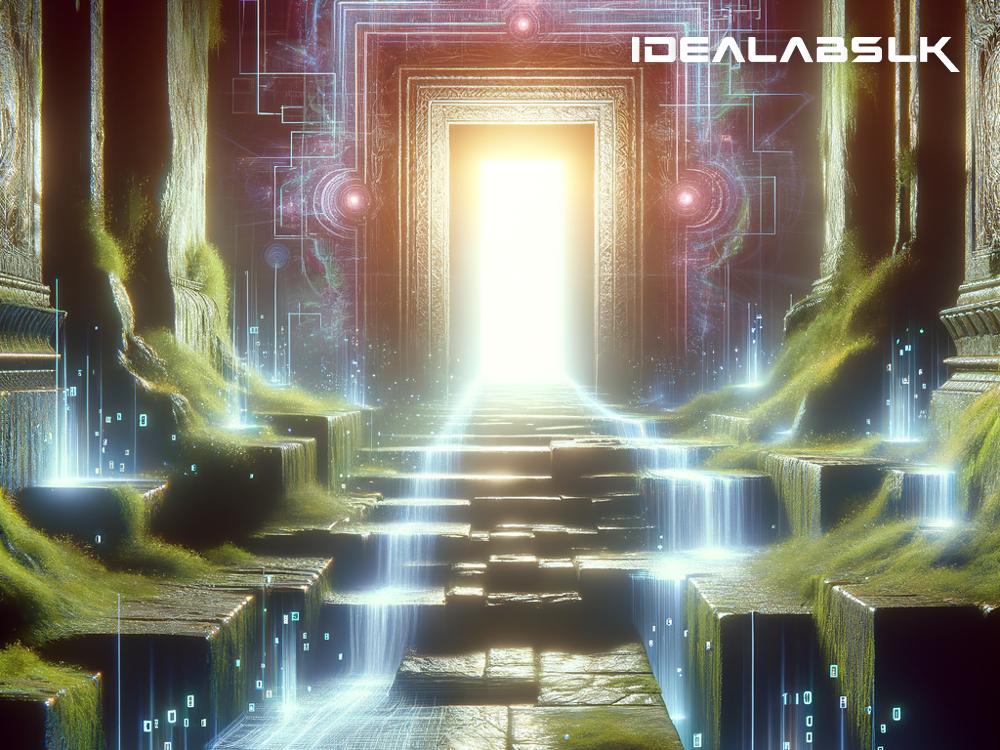The Future of Dungeon Crawlers: How AI and Procedural Generation Are Leading the Charge
As we look toward the horizon of gaming in 2025, it's clear that technology is about to revolutionize our favorite genres in ways we've hardly imagined. Among these exciting advancements, Artificial Intelligence (AI) and Procedural Generation technologies are set to dramatically reshape the world of dungeon crawler games, especially iconic series like Diablo. These innovative tools are not just hype; they promise to redefine our gaming experiences by making every adventure unique, challenging, and infinitely replayable. Let's delve into how these technologies are poised to change the future of games like Diablo IV and what it means for gamers.
The Magic of Procedural Generation
Imagine stepping into a dungeon that no one else has ever explored or fighting monsters whose tactics evolve each time you play. This dream is becoming a reality with procedural generation, a technology that creates data algorithmically rather than manually. In the context of dungeon crawlers, this means levels, environments, enemies, and loot can be generated dynamically, offering a fresh experience with every playthrough.
But why is this so groundbreaking? For starters, it combats the familiar feeling of repetition. Even the most beloved games can become predictable after enough hours spent wandering their corridors. Procedural generation ensures that each dungeon dive feels new, maintaining the thrill of exploration and discovery. And when the environment constantly changes, it demands more tactical flexibility and creativity from players, keeping the gameplay challenging and engaging.
AI’s Role in Refining Gameplay
While procedural generation changes the landscape, AI is set to revolutionize the inhabitants of these worlds. Gone are the days of predictable enemy behavior. With advanced AI, monsters and villains can learn from your tactics, adapt their strategies, and provide a genuine challenge.
Furthermore, AI can be used to refine the procedural generation process itself, ensuring that generated dungeons are not only random but also intelligently designed. This means creating environments that are both challenging and physically plausible, avoiding the nonsensical or frustrating layouts that can sometimes result from purely random generation.
The Social Aspect: Dynamic Storytelling and Multiplayer Experiences
Another exciting prospect is how these technologies can enhance storytelling and multiplayer experiences. Procedural generation can create unique quests and storylines, making your adventure feel truly personal. Imagine a game that crafts a narrative based on your choices, experiences, and the paths you've taken, all generated on the fly.
For multiplayer, this technology means that each party member could have their personalized challenges or story threads within the same dungeon. This could lead to richer cooperative play, where players need to work together not just to combat foes but to unravel the unique mysteries their version of the game world presents.
Preparing for a Different Gaming Landscape in 2025
As we edge closer to 2025, the gaming community and industry alike must prepare for the shift these technologies will bring. For developers, the challenge will be mastering these tools to create balanced, engaging, and fun experiences. They'll need to ensure that procedural generation doesn't sacrifice thoughtful design and that AI enemies remain fair while being challenging.
Gamers, on the other hand, will need to adapt to a landscape where no two playthroughs are the same, where strategies must evolve, and where adaptability is key. It’s a prospect that's as exciting as it is daunting.
The Promise and Challenges Ahead
While the promise of AI and procedural generation in games like Diablo IV is incredibly exciting, it's not without its challenges. Balancing randomness with cohesive game design, ensuring AI behaves in a manner that's challenging but not frustrating, and maintaining the narrative coherence in a dynamically generated world are just a few of the hurdles developers will need to overcome.
However, the potential benefits – a game that's infinitely replayable, constantly surprising, and deeply personalized – make these challenges worth tackling. As we move towards 2025, the fusion of AI and procedural generation is set to redefine the dungeon crawler genre, promising a future where every adventure is as unique as the player embarking on it. The dungeons of tomorrow await, and they're unlike anything we've seen before.

